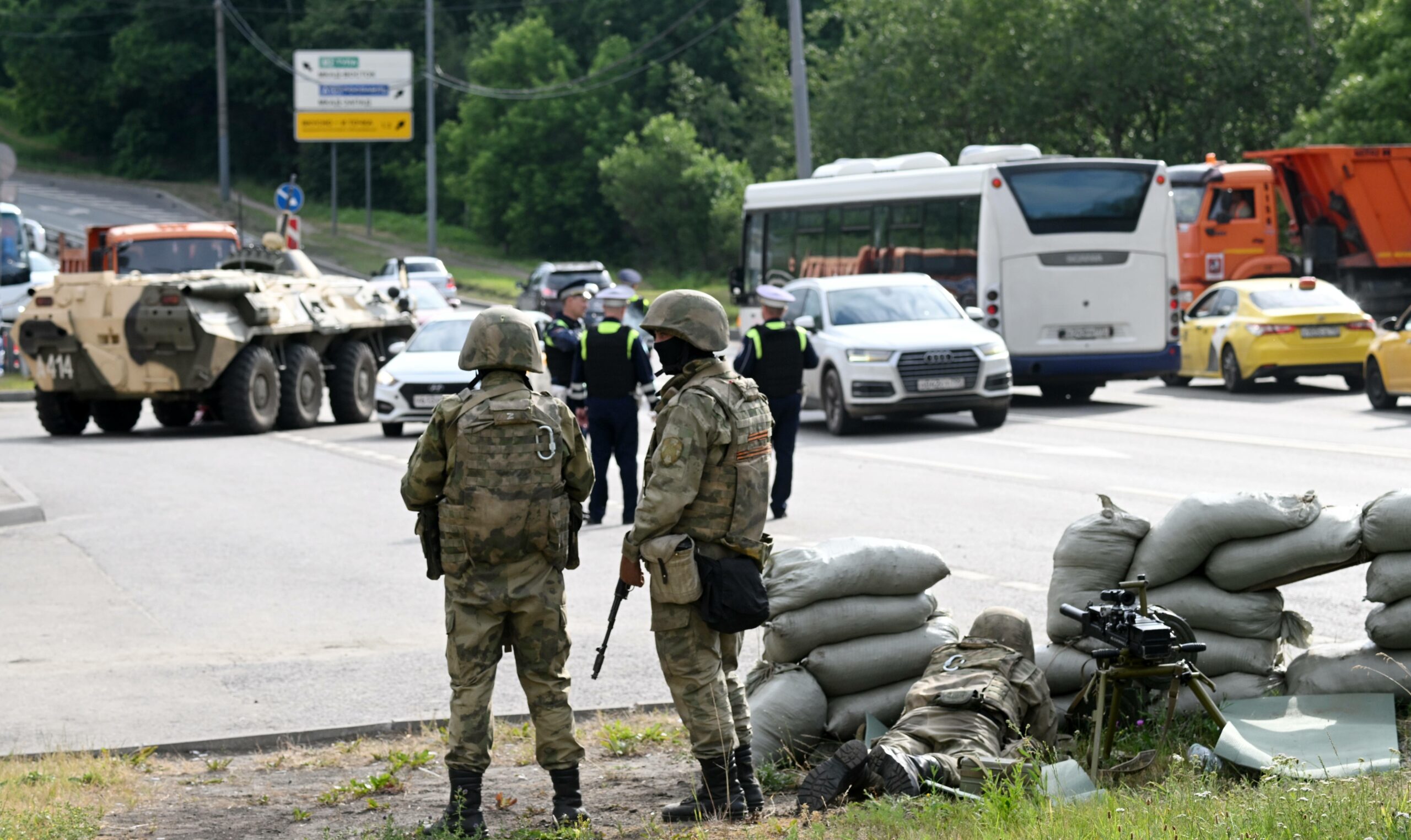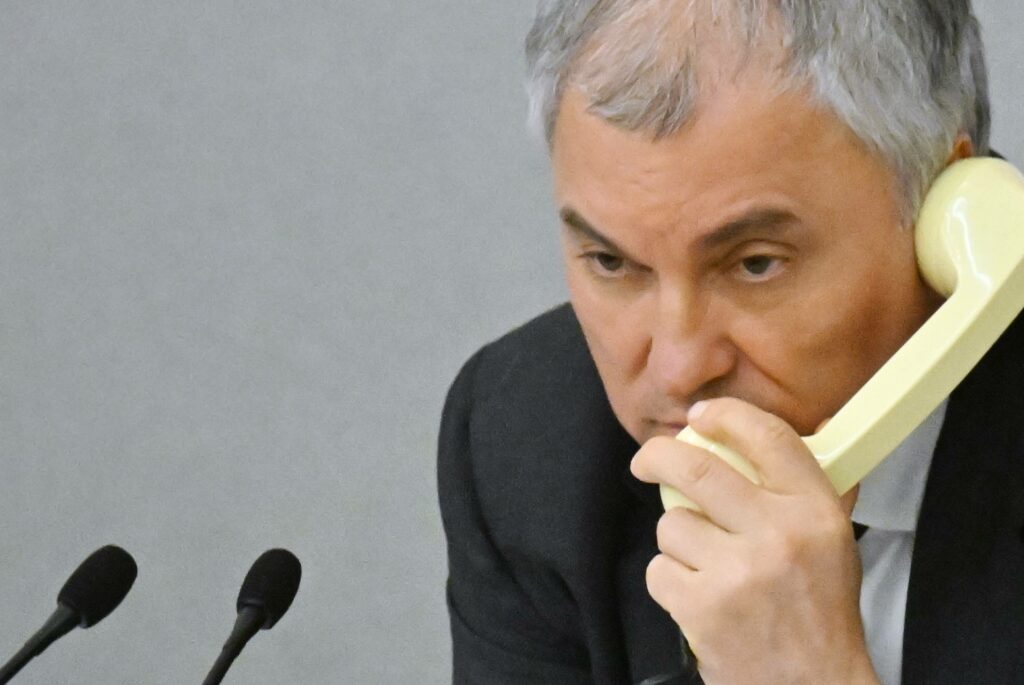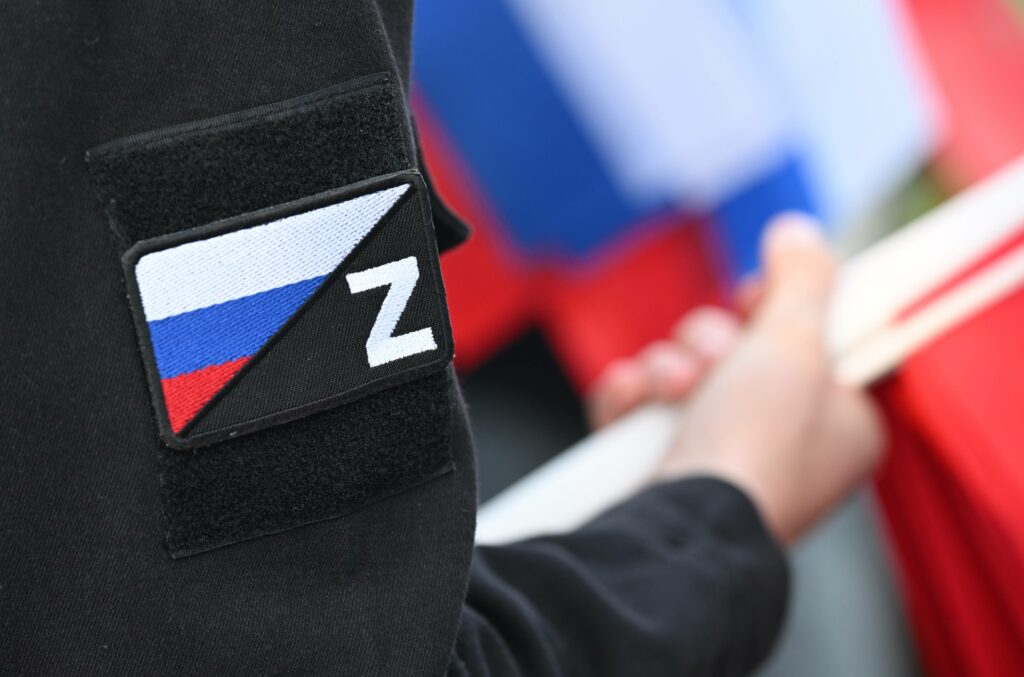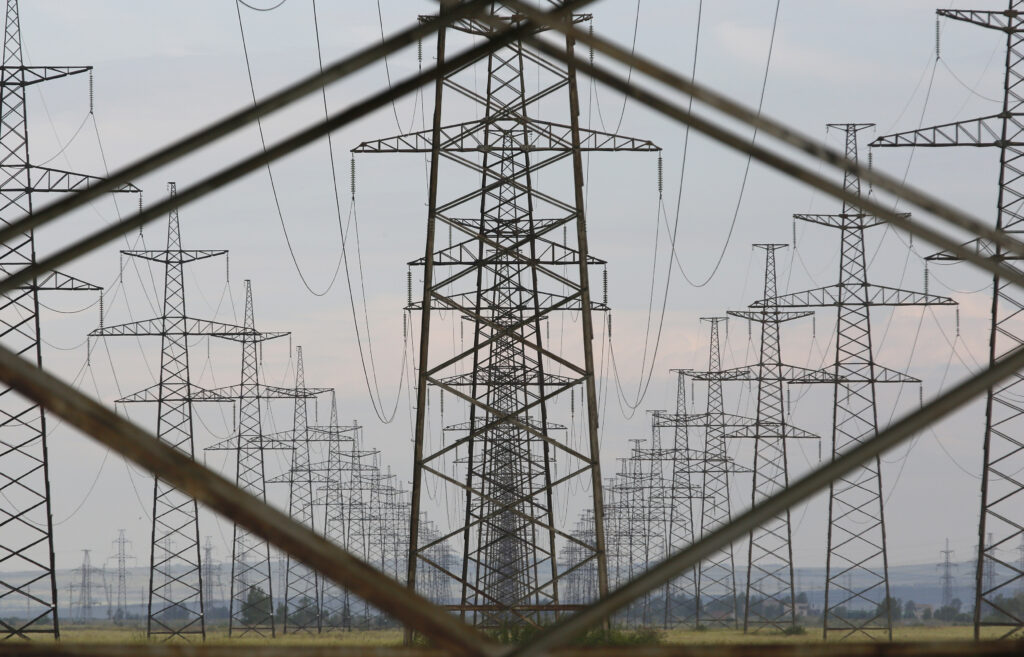When Russian troops invaded Ukraine, anti-war protests started all over Russia, but they did not achieve their goal: the number of protesters proved relatively small, and the police cracked down on the protest movement with ease. Nevertheless, many commentators switched to another possible scenario heralding the end to the war and political change in Russia: a split within the elites.
It seemed that the political and economic elites, for whom the war came as a profound shock (of which we have plenty of indications), would close their ranks against Putin, especially in the face of military defeats. A week after the start of the invasion, opposition politician Dmitry Gudkov argued: «We are going to see a split in the elites in the nearest future.» Leonid Volkov, a member of Navalny’s team, echoed Gudkov’s prediction: «Putin will lose power because of the conflicts in his entourage.» The «schism of the elites» quickly became a catchphrase, a cliché of sorts.
And just like any other cliché, the «schism of the elites» has taken on a life of its own. For the authorities, it has become a part and parcel of the paranoid rhetoric that feeds on the search for internal enemies and also an argument against the possibility of any, however cautious, criticism of the unfolding events. In the words of Vyacheslav Volodin, chairman of the State Duma, «our country has never been defeated by external challenges. All its problems have been caused by treason and a split in the elites.»
Intelligence representative of the Ministry of Defense of Ukraine Andriy Chernyak said: «[Th]e split within the so-called Kremlin elites is not a scenario, but a fait accompli», although «the depth of this split and the readiness of certain groups to act» are still in question.
Drawing on their own anonymous sources in the Kremlin Western journalists have enthusiastically joined the search for the traces of a split within the elites, this «mythical beast,» as the late political strategist Gleb Pavlovsky put it.
Why the hopes for an elite split?
The infamous February 21, 2022 Security Council meeting, which served as a prologue to the war, clearly demonstrated just how utterly alone Putin was: Security Council members were tongue-tied, some tried timidly to point out the remaining diplomatic options, while Putin responded stiffly and derisively, apparently not too mindful of what his entourage thought or had to say. Subsequent journalistic investigations revealed that even the most senior officials had not been aware of Putin’s plans to launch the military operation.
Hardly many members of the Russian elite benefited from the full-scale war against Ukraine that began on February 24, 2022, but it is easy to identify those who suffered from it. The very mechanism of converting the proceeds of corruption into foreign assets, which for decades had been an integral and vital part of the Russian state apparatus, came under a blow. People were losing money and their real estate, as well as the very possibility to travel to the West and be there. For Russia’s big business, the economic measures applied by the «unfriendly countries» against Russia also spelled the collapse of their long-standing strategy of internationalization and integration into the global economy. In return, Putin could only offer patriotic speeches, the preservation of «feeding troughs» inside the country (which, however, were replenished from the assets of the now defunct Western companies), and cooperation with «friendly» countries that was rather dubious in terms of benefits. Moreover, because of the decline in exports, especially in the second year of the war, the total volume of resources available for corrupt looting also began to dwindle.
As time went on, the stakes grew: the more war crimes the Russian army committed, the clearer it became that not only is the war fraught with economic losses, but also with a non-small chance of ending up in the dock at the Hague. Why do not the Russian elites unite against Putin, if the carnage he unleashed was so unprofitable and dangerous for the ruling class? After all, the 101 of political science teaches us that it is easier for small groups (in this case, the Russian elites) to coordinate and engage in a collective action than it is for larger groups (the population) to do so.
However, we did not get to see that happen in the last 15 months of the war. Representatives of the elite share their fears and anxieties mostly anonymously but occasionally also publicly as did Mikhail Zadornov, chairman of the board of directors of Bank Otkrytie Financial Corporation. He noted: «With sarcastic joy our TV programs report that the Europeans are freezing. I don’t quite see what is here to be so cheerful about. In fact, we’re losing markets that we’ve been building since the Soviet times. It took the last 50 years to build a market and the economic ties that are now in shambles and will be lost to us for several decades to come. Today we have lost these markets.» Obviously, many people agree with Zadornov’s point, but no one does anything about it.
Is the elite split possible or not?
Let us now turn to Henry Hale’s book Patronal Politics: Eurasian Regime Dynamics in Comparative Perspective (2014). Hale is an American political scientist and his Patronal Politics is currently the most detailed study of «color revolutions» and regime transformations in the post-Soviet space that we have. He points out that the notorious split within the elites was the trigger behind virtually every single «color revolution» across the post-Soviet space.
Many post-Soviet regimes, Hale notes, had a powerful repressive apparatus at their disposal, met with little serious resistance on the part of the population and looked stable, that is, until they suddenly collapsed. This happened when two factors converged: on the one hand, the leaders of such regimes lost popularity and became «lame ducks,» and on the other, they simultaneously faced the near end of the last constitutionally proscribed term in office. That prompted the question of some form of transition of power (for example, an appointment of a successor), but this question itself generated uncertainty, which contributed to the emergence of alternative centers of power (especially during the elections). As the elites were unwilling to «put all their eggs in one basket,» support for the unpopular incumbent (the incumbent leader) dwindled and the number of defectors to the enemy camp increased, and, as a result, power shifted to somebody else’s hands. In this scheme elections are important not as the expression of the will of the people, but as an event around which the expectations of the elites crystallize and around which they coordinate their actions.
Putin seems to understand this logic perfectly well, which is why he launched preparations for the transit of power well in advance, back in 2020. The main purpose of «zeroing» (resetting presidential terms proscribed by the constitution, which allow Putin to run for presidency twice more in his lifetime) was to convey the message to the elites that any intrigue or uncertainty of the 2024 elections was completely out of question. After Putin comes Putin and no one else but him. That enabled him to avoid the moment of vulnerability produced by the appointment of a successor or by the creation of two centers of power à la Kazakh pattern. Parenthetically, subsequent defeat of Nazarbayev clan in Kazakhstan showed that Putin’s decision was prescient.
Recently Putin once again reminded those willing to listen that he was not going anywhere and that the 2024 elections are meant to be nothing more than a plebiscite, for people to yet again express their support of him. During his visit to Moscow, Chinese leader Xi Jinping said: «I know that next year there will be another presidential elections in your country. Thanks to your strong leadership in recent years, Russia has made significant progress in achieving prosperity for the country. I am confident that the Russian people will strongly support you in your good deeds.» This unequivocal expression of willingness to continue working with Putin was obviously part of Putin’s behind-the-scenes agreements with the Chinese side. This position of Russia’s main ally as of today is meant to emphasize once again to all the naysayers: Putin is not a «lame duck» and he is here to stay: he is not going anywhere. What’s more, Putin’s regime, whatever difficulties it may be facing in Ukraine, will have the support of China, which needs Russia on its side in its own increasingly acute conflict with the West.
The problem, then, is not just the Russian elite’s fear of Putin (though decades of negative selection have indeed left only cowardly conformists in his entourage). After all, the heads of the security apparatus are just as conformist. If Putin’s position were to weaken suddenly and dramatically, they could as easily swap sides and join his enemies instead of punishing them.
The problem is the lack of a focal event around which the expectations of the elites would crystallize and in connection with which the elites could split. The 2024 elections will not be such an event: Putin has taken care of that. But it could be a series of severe defeats suffered by the Russian army. This would ultimately undo and devalue all the sacrifices the elite has made since February 24, 2022, and could serve as a call to action. Based on Hale’s theory, the main issue is the expectations harbored by the elites: the regime is only stable as long as the elites are convinced that no one in their ranks will dare to oppose the leader. The defeat of the Russian army could become a game-changing event that shifts these expectations.
The elites’ calculation of the benefits and risks of their inaction is also shaped by Western sanctions. So far, Western countries have not made full use of personal sanctions as an instrument of pressure on the elites loyal to the regime. Thus, there are currently about 1,500 people under sanctions, although Alexei Navalny’s Anti-Corruption Foundation proposed a much longer list that includes 7,000 names. In addition, Western countries have frozen only a small fraction of the assets held by the members of the Russian elite. Finally, there is currently no guideline or procedure that would allow someone to have his or her name removed from the sanctions list and have personal sanctions lifted in exchange for a loud and clear public condemnation of the Russian aggression against Ukraine and disassociation from the Kremlin. It means that the sanctions offer the elites no incentive to change their behavior. At the same time, if all these conditions are met, the elites’ assessment of the benefits and costs of inaction could change.
Prigozhin’s mutiny and the fragility of power
Some analysts refer to the disagreements in and around the Kremlin as the «split of the elites»: the emergence of a pole of realists who believe that it is time to turn to defense, and a pole of those advocating escalation and insisting on an all-out war till the bitter, or not so bitter, end. Strictly speaking, different opinions in elite circles are not yet a sign of their fragmentation, but as it has now become clear, they can provoke considerable instability.
Previously, political analysts noted that conflicts like the loud and public confrontation between Prigozhin and the Defense Ministry are not only not dangerous, but also in some ways beneficial to Putin and even encouraged by him, because only he can act as an arbiter in them, which only goes to prove how irreplaceable for the system he is. In addition, such squabbles prevent any of the sides from becoming too strong, precluding any potential challenge to Putin’s power from arising. «Divide and rule» is a principle as old as tyranny itself, but no less effective for that.
However, Prigozhin’s mutiny has demonstrated that the principle of «divide and rule» has a flip side to it as well. In a situation of mutual distrust and lack of institutional control, one of the players that feels threatened can become a lose canon. This, in turn, may trigger the whole process described by Hale: depending on the course of the mutiny and Putin’s reaction, the elite’s expectations change.
Despite the fact that Prigozhin’s armed uprising was brought under control and aborted within 24 hours, the elite could not but draw conclusions from what they have just witnessed: Prigozhin aggressively reprimanding Deputy Defense Minister Yevkurov who entered into negotiations with him instead of court-martialing him immediately together with the rest of the «Wagner»; the heavily armed military vehicles sweeping across the country almost unimpeded and nearly reaching Moscow; Prigozhin emerging from the whole affair almost unscathed, releasing voice message again quite nonchalantly, although this time from Belarus, etc.
Along with the situation on the front and the Western sanctions, the Prigozhin’s rebellion is affecting the calculus of elite actors. Putin’s vulnerability, however temporary, has become public knowledge and public spectacle. And in Hale’s logic, the incumbent’s vulnerability is a self-fulfilling prophecy. Thus, we can conclude that Prigozhin’s challenge to Putin’s power will not be the last one Putin is going to face.










